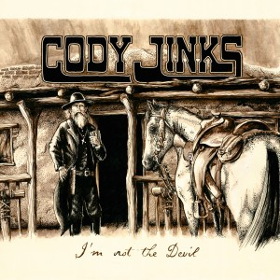The album begins with the title track, which details the beginning of McBryde's journey where she was doubted by people in her life. It might be a familiar theme, but one thing most great art has in common is the ability to put a personal twist on everyday, relatable stories. McBryde accomplishes just that with "Girl Going Nowhere" and it's a great way to start the album.
What follows is a group of good to great songs with the lone exception of "Southern Babylon," which is strange and awkward and interrupts the cohesion of the album as a whole. Thankfully, it's the album's only misstep. Songs like lead single "A Little Dive Bar in Dahlonega" showcase once again McBryde's ability to take everyday narratives and give them the personal twist needed to make them all her own.
Hands down my favorite song on Girl Going Nowhere is "Livin' Next to Leroy." Meth is an epidemic in the Midwest as well as other parts of the United States, and to hear a song approach the topic on a mainstream country album is very moving, and I hope that it reaches the right ears so it can inspire addicts to seek help and give the rest of us the swift kick in the ass we need. Perhaps the best part of "Livin' Next to Leroy" is its implied message--at this point we can't ignore the problem anymore, and something needs to change.
Hands down my favorite song on Girl Going Nowhere is "Livin' Next to Leroy." Meth is an epidemic in the Midwest as well as other parts of the United States, and to hear a song approach the topic on a mainstream country album is very moving, and I hope that it reaches the right ears so it can inspire addicts to seek help and give the rest of us the swift kick in the ass we need. Perhaps the best part of "Livin' Next to Leroy" is its implied message--at this point we can't ignore the problem anymore, and something needs to change.
"Andy (I Can't Live Without You)" is another standout. If this song can't make a listener think of someone who can frustrate them one moment, then light them on fire internally the next, nothing will. It's a very emotional testament to the trials and tribulations of everyday life with a partner, only to remind us of things that really matter during the chorus.
One more favorite is "El Dorado." At first I was hoping it was a cover of the song written and performed by Randy Rogers and Wade Bowen on Hold My Beer, Volume I. Instead, though, McBryde unleashes an uptempo song that is wonderfully catchy. The placement of the song was excellent, too, as it provided a needed break after hearing "Livin' Next to Leroy" and "Andy (I Can't Live Without You)" as two of the three prior songs.
Overall, Girl Going Nowhere is an excellent mainstream debut for Ashley McBryde. It's already rare to find an album with only one bad song, but for McBryde to pull it off with her first release that'll reach a national audience? To say the very least, that's impressive. Highly recommended. 8/10





